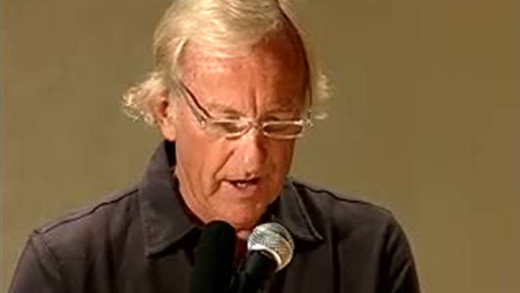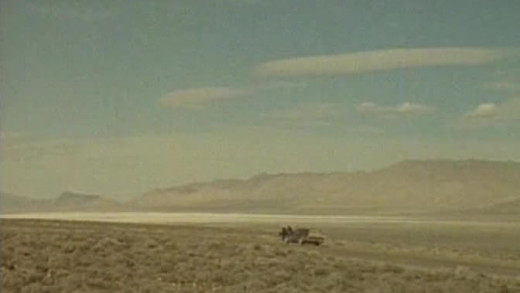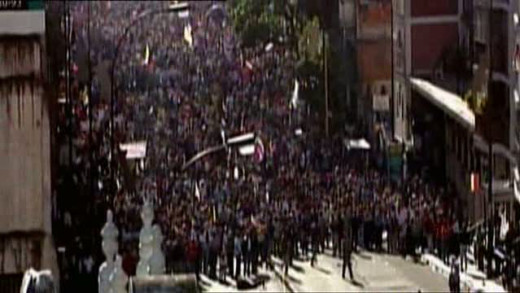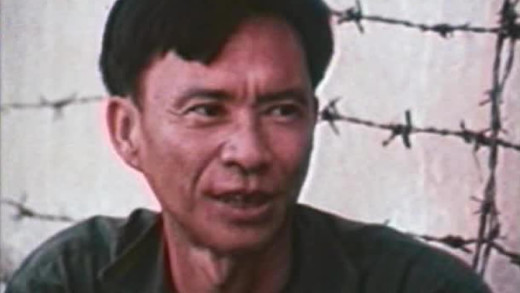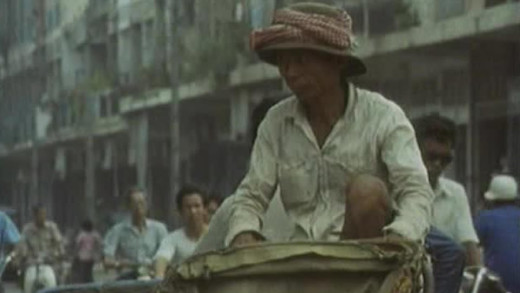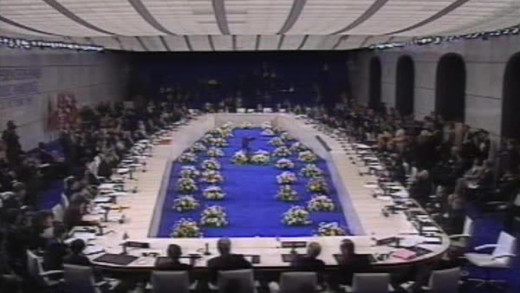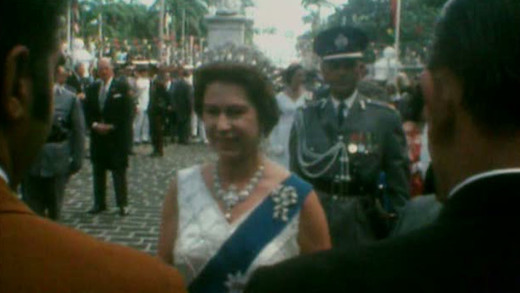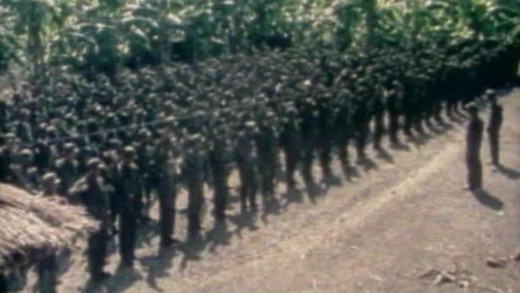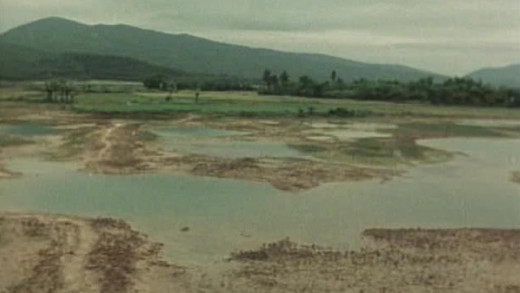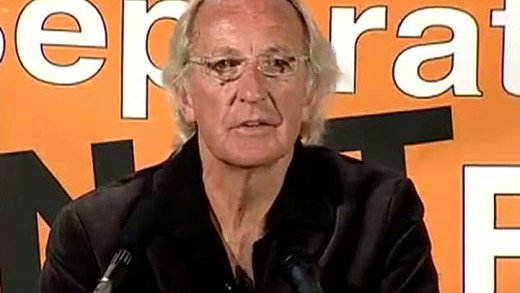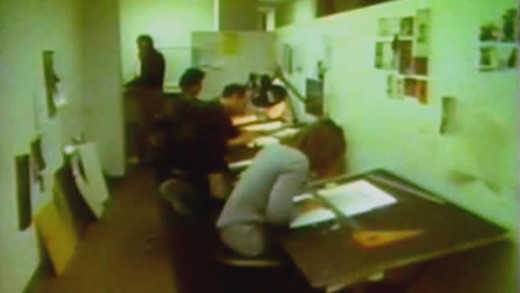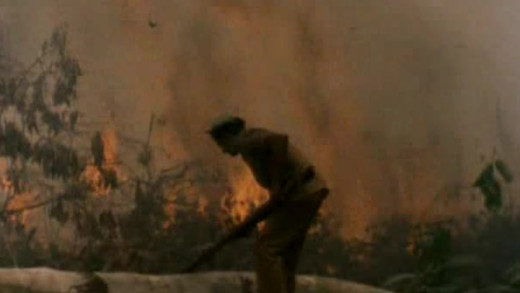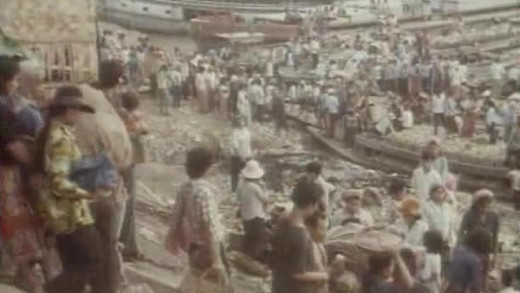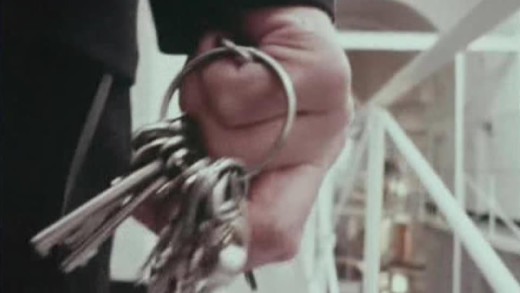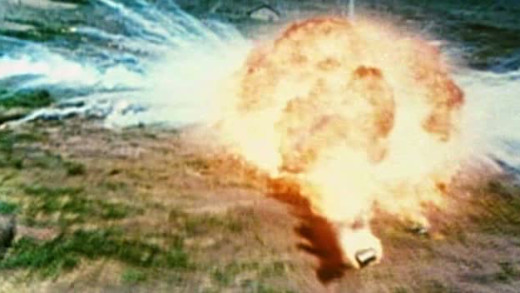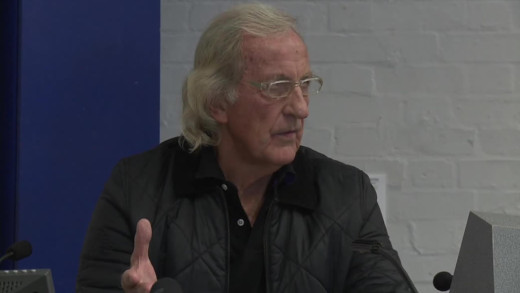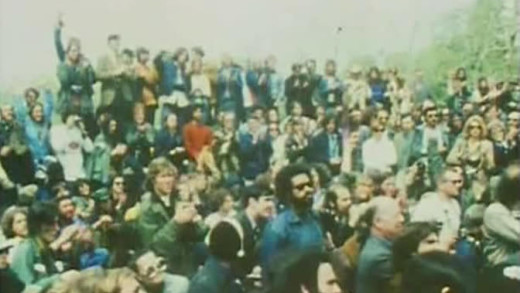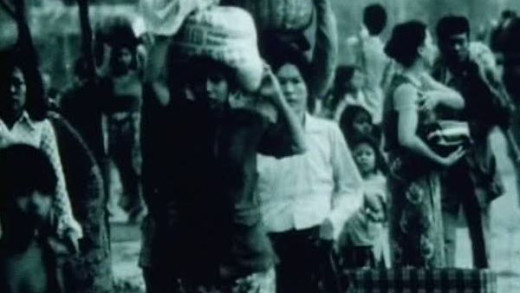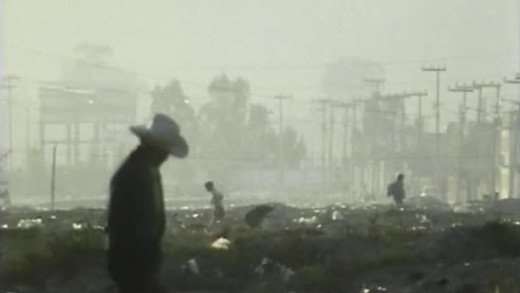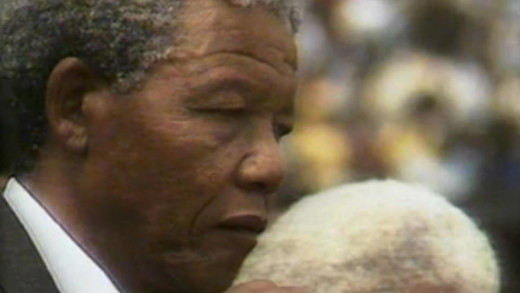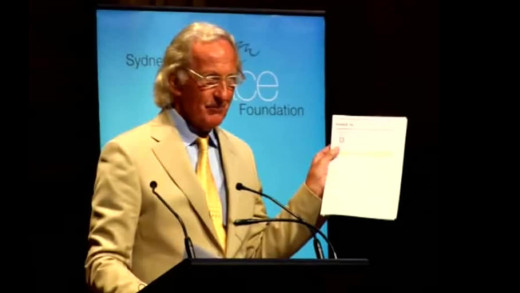Founded in 1976, the United States Office of Multilateral Diplomacy--known informally as the Zap Office--was created by Henry Kissinger to try and influence the voting patterns of third world nations at the United Nations by withholding food aid to those who did not vote alongside the United States. Zap! The Weapon Is Food is an investigation of this policy, one that makes food more powerful than oil...
An Unjustifiable Risk investigates the many risks of plutonium usage in nuclear power generation and the use of fast-breeder reactors argued for the UK in the 1970s. The film turns to Hiroshima, Japan to illustrate the powerful destructive capacities of plutonium, feeding-back the personal experiences of those effected by nuclear weapons into the debate against nuclear power and its consequences...
Australian journalist, author and film maker John Pilger speaks about global media consolidation, war by journalism, the US military and its quest for domination/hegemony in the post 9-11 era and the false history that is presented in the guise of 'objective' journalism...
John Pilger travels to Reno, Navada in the United States, to investigate the threats facing Pyramid Lake--a reservation of the Paiute people. With water diversion beginning in 1905 by Derby Dam and the lake's very existence threatened, the Paiute sue the conservation department of government--the DOI--to curtail further damage. By the mid 1970s, the lake had lost 80 feet of depth, with extensive impacts to fish and other life of the lake. Further water diversion in the 1970s was driven by a racially-exclusive sportsman's and leisure reserve used for white hunting and recreation near the town of Fallon...
Set in Latin America and the US, War on Democracy explores the historic and current relationship of Washington with countries such as Venezuela, Bolivia and Chile. John Pilger examines the role of Washington in America's manipulation of Latin America during the last 50 years leading up to the struggle by ordinary people to free themselves from poverty and racism...
Cambodia -- Year One investigates the effect of aid to Cambodia and the extent of the country's so-called new found stability as in 1980. The film portrays Cambodia on a brink of famine and cultural annihilation, but in the process of recovery, also showing the continued support for the Khmer Rouge regime by China and the United Nations.
Cambodia -- The Betrayal is the fourth follow-up to John Pilger and David Munro's series on Cambodia, the film Year Ten from 1989, which examined the hypocrisy of western geopolitics by looking at the way in which the United Nations pressured Cambodia to accept the Khmer Rouge regime as part of the United Nations peace plan.
In these three films, John Pilger and Alan Lowery return to Australia to celebrate the country’s bicentenary, interviewing an extraordinary range of Australians from diverse backgrounds, each of whose views are a long way from those of the treasured Aussie stereotypes...
John Pilger travels to Cambodia to investigate how the United Nations has allowed the Khmer Rouge regime to grow stronger. Why has Pol Pot's organisation grown stronger and more menacing since the arrival of the UN? Cambodia -- Return To Year Zero looks behind the façade of the so-called 'peace process' and asks: Has the unthinkable for Cambodia at last been made acceptable for the rest of the world?
In the 1960s and 70s, British governments conspiring with American officials, secretly tricked into leaving and then expelled, the entire population of the Chagos islands in the Indian Ocean as to make way for a major American military base. Indeed from Diego Garcia, American military planes have since bombed Afghanistan and Iraq. Stealing A Nation documents the story of the islanders who were dumped in the slums of Mauritius and in the words of the British officials who left a 'paper trail' of what the International Criminal Court now describes as 'a crime against humanity'...
John Pilger once again travels to Cambodia to report on the brutality and murderous political ambitions of the Pol Pot and Khmer Rouge totalitarian regime which brought genocide and despair to the people of Cambodia; while neighbouring countries, including Australia and the United Nations shamefully ignored the immense human suffering and unspeakable crimes that bloodied the country...
In 1978, three years after the end of the Vietnam War, film-maker John Pilger travels back to Vietnam to find out what had happened under the new regime. Do You Remember Vietnam? recounts numerous personal stories: talks with a young tour guide at a war crimes museum who had been imprisoned in the infamous US tiger cages; a former North Vietnamese soldier into the underground base where he spent 20 years crawling through tunnels undetected; and views from the streets in Hanoi, where the largest single aerial bombardment in history took place.
Since 1945, by deed and by example, the US has overthrown 50 governments, including democracies, crushed some 30 liberation movements and supported tyrannies from Egypt to Guatemala. Bombing and war is as American as apple pie. Obama, having stacked his government with warmongers, Wall Street cronies and polluters from the Bush and Clinton eras, the 45th president is merely upholding tradition...
Street of Joy
Street Of Joy looks at how product marketing methods and advertising techniques are applied to politics by specifically following the campaigns around the election of Jimmy Carter in the United States during 1976. In these times, the techniques of today are seen in their early years, especially the use of carefully crafted images for use on television...
War By Other Means examines the policy of western banks making loans to so-called 'third world' countries, which are then unable to meet the crippling interest charges—debt used as a weapon. The film primarily analyses 'Structural Adjustment Programs,' which are proclaimed to enable countries to compete in the 'global economy,' but have the opposite effect of lowering wages which in turn further transfers the wealth from the poor to the rich.
Cambodia -- Year Ten Update examines the reactions of the British government and the United Nations to the international outcry over the situation in Cambodia.
Guilty Until Proven Innocent reports on the issue of innocent people confined to prisons on remand in the UK, circa 1974. People are imprisoned without trial and are later released with either a small fine, a set of mandatory conditions, or leave completely innocent. It's a strange set of circumstances in a country with such pretensions of a bill of rights and espoused 'legal protections.' Is bail a right or a privilege?
The 2000 Olympic Games in Sydney were universally recognised as an overwhelming success. The Australian heroine from start, when she carried the Olympic torch into the stadium, to finish, as she crossed the line to take 400m gold, was the indigenous athlete Cathy Freeman. Against the will of many of her still oppressed people, she came to represent the symbol, albeit shallow, of reconciliation between White Australia and Indigenous Australia. But the frenzy of flames and fireworks surrounding the Games blinded the rest of the world to the real history behind it all...
Thalidomide: The Ninety-Eight We Forgot follows a four-year investigation on behalf of a group of children damaged at birth by the drug Thalidomide which was introduced in the late 1950s to treat morning sickness and to aid sleep. The drug caused birth deformities, such as phocomelia, with more than 10,000 children in 46 countries born with deformities. This film investigates why a group of people are excluded from compensation from the effects of Thalidomide by various legal proceedings—still relevant today in the context of how the legal system continues to protect corporations at the expense of life itself.
The War You Don't See traces the history of 'embedded' and independent reporting from the carnage of World War One to the destruction of Hiroshima, and from the invasion of Vietnam to the current war in Afghanistan and disaster in Iraq. As weapons and propaganda become even more sophisticated, the nature of war is developing into an 'electronic battlefield' in which journalists play a key role, and civilians are the victims. But who is the real enemy?
John Pilger talks about the various mainstream media commonalities of today--censorship by omission, information management, Public Relations and the 'massaging of information', as well as the clever distractions such as the election of Obama as a war monger in the land of slavery, alongside figures such as Hillary Clinton and Julia Gillard as a false win for so-called 'feminist ideals.' Amongst the ongoing wars played by the United States, Britain and Australia, Media And War -- Challenging The Consensus is a renewed call to unravel complex propaganda and cut through distractions.
Heroes
Heroes reports on the treatment of returning combat soldiers from Vietnam in the early 1980s. The film investigates the strange cultural absence of reverence or memory to soldiers returning home, and shows with first-hand accounts and interviews with returning soldiers, opines from the front line about America's unpopular war.
As the first complete report of the atrocities committed by the Khmer Rouge and the devastating affects of US bombing in Cambodia during the Vietnam War, Year Zero -- The Silent Death Of Cambodia is an important and historic document of the grim reign of Pol Pot and the world's response of indifference and inaction...
The Mexicans
The Mexicans reports on the history of political repression and corruption in Mexico, a country dominated to this day by its close neighbour—the United States.
Apartheid based on race is 'outlawed now', but the system always went far deeper than that. The cruelty and injustice were underwritten by an economic apartheid, which regarded people as no more than cheap expendable labour. It was backed by great business corporations in South Africa, Britain, the rest of Europe, and the United States and it was this apartheid based on money and profit that allowed a small minority to control most of the land, most of the industrial wealth, and most of the economic power. Today, the same system is called--without a trace of irony--the free market.
John Pilger talks at a public forum in Sydney about the recent revelations of WikiLeaks and the importance of leaked information in exposing the lies and machinations of Public Relations in mainstream media and political rhetoric. Pilger demonstrates the parallels with the plight of Julian Assange and the treatment of David Hicks through the United States legal system, and also explains using recent leaked documents why state power sees investigative journalists and others as a major threat to the established order...


